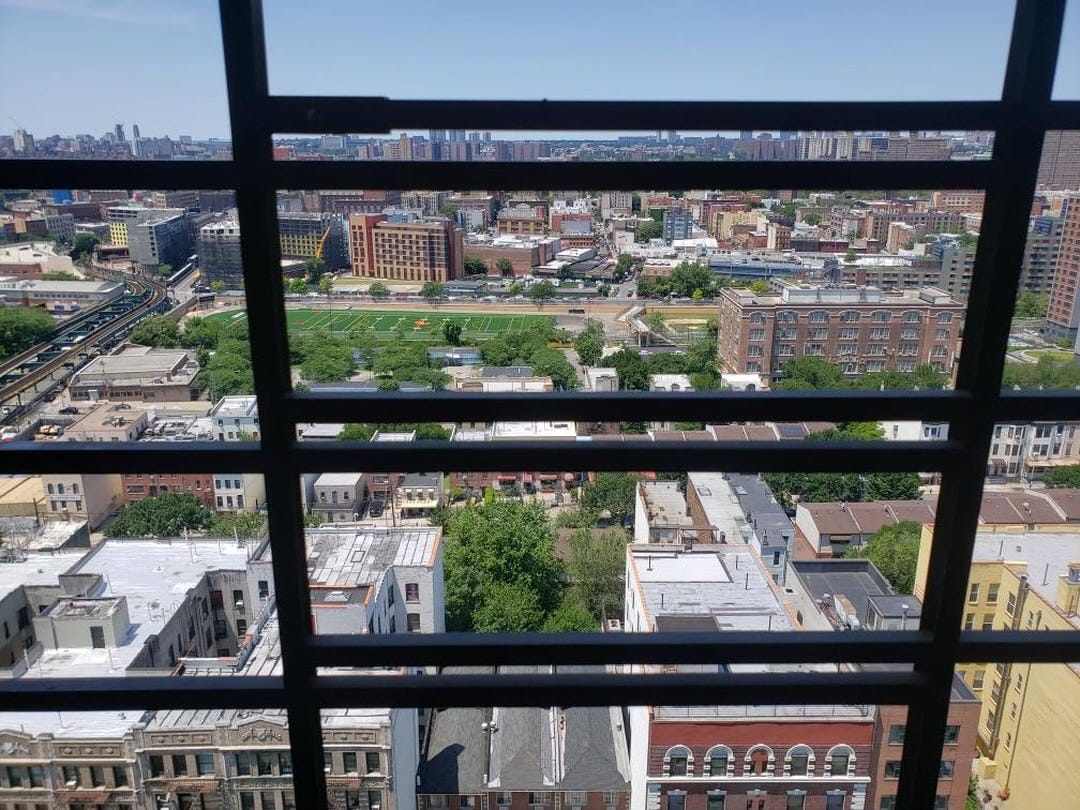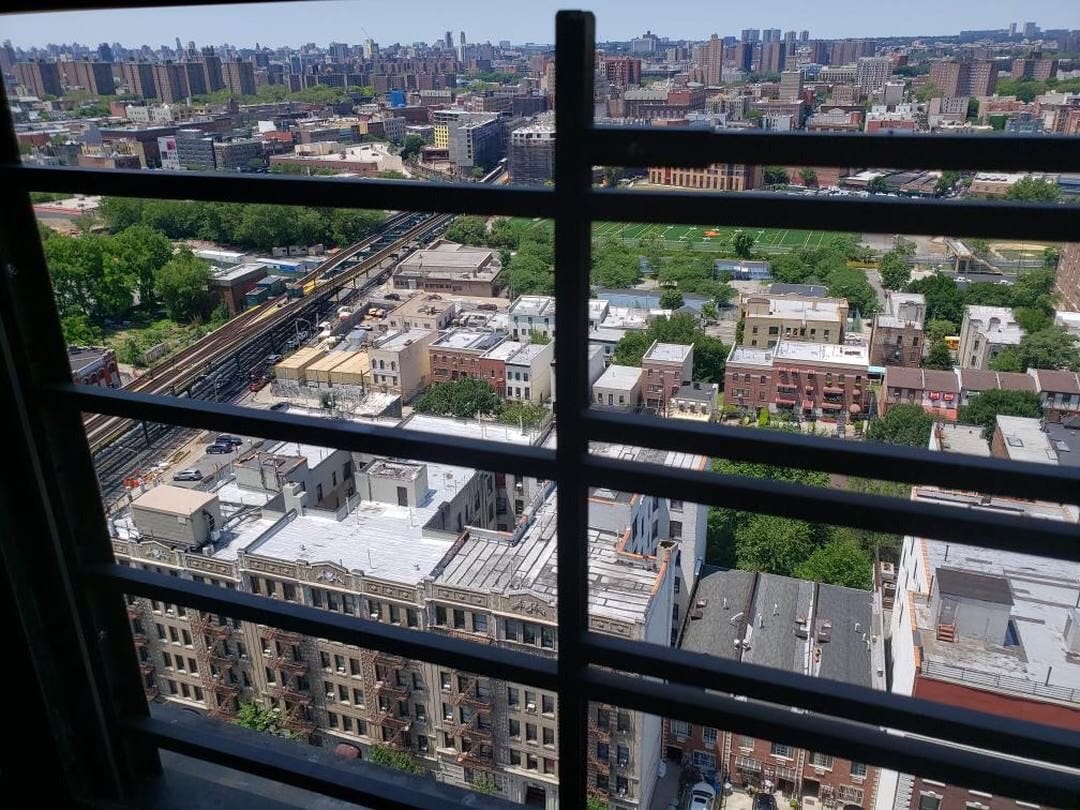The door slammed shut behind me with finality.
In this room, the one frequently changing shape across continental and international borders, were serious people. Some had aging totes and quippy pins displayed on jackets, others had ball caps and worn books tucked into the back pocket of jeans— they all were immediately suspicious of me. I likened it to a shark tank, where its occupants swam rigorously, just waiting for a shot to draw blood. Their voices competing for authority, hands gesturing wildly with a glee that felt inappropriate for the subject matter being discussed. They were searching for something, signifiers. A way to disseminate roles and aims; find out who’s an ally or foe, if such a thing exists, and in these rooms, the preferred way to answer that question is to ask,
“So what are you, like a Marxist-Leninist? Or, Mao? You give a Maoist vibe. Maybe Anarcho-Communist? You seem like you get excited by destruction.”
This interrogation offered with a smile was not innocuous. Even when I couldn’t understand what the measure was or why it mattered so much, I knew it existed, knew I was auditioning for something.
When I began answering these questions, I couldn’t even adequately define these affiliations. It was like speaking a different language. Amongst these people, politics felt larger than life. Some obscure entity that only the brightest minds could interact with in earnest; a lifetime spent coordinating survival in the ghetto didn’t inspire much confidence here.
My introduction to a moving politic, what I’ve since come to know as a praxis, was fighting to survive. The benevolence of fellow poors carried me into adulthood and those actions rarely came with a thesis explaining why they felt endeared to helping others. It was largely left undefined, those efforts seemed to be of little consequence without an accompanying label here.
“I’d say I’m a…”
Bullshitter.
Long before I felt comfortable with my answers, I learned to assert them well. I sat in a basement in Portland once having to prove my fealty to the cause with text I found too dense and ill equipped for contemporary times. The performance of it all felt like drag; the same way having to appear worldly enough to exchange money but classy enough not to beg for it did when I interacted with clients. An aloofness to one’s worldview and how they navigated it, was its own currency. The act I could only drop with the undesirables who faked it alongside me. The whores, the addicts, the homeless, the bereft— those of us in communities these spaces turned into a thought exercise one Thursday a month.
Theory wasn’t something I picked up out of a natural curiosity but rather, I felt compelled to. Admittance to these spaces, the ones that posture concern for the revolution wasn’t the only task, there’s continued performance. One less about attendance and more about active, widely seen cerebral participation valorizing these texts and their authors. It wasn’t enough to assert a belief in the same things, the origins mattered— what sage ole wise one gifted you with this clarity.
For me, it was none of them.
I’m longwinded, have been every day since I acquired the skills required to talk you down or make your eyes blur from sentences that never cease to exist. At the dinner table, consenting to a story from me means going on an adventure, one that could take hours (it seems) to get to. A childhood friend’s mother called me motormouth when she thought I wasn’t around; I heard her, I just didn’t have the sense to find it insulting. You’d think this quality would bode well in intellectually curious spaces, it would. I just wasn’t in them.
These basements and coffee shops and booked meeting rooms weren’t about curiosity or a fervor for change. It was the gladiator pit. The prime location to flex or fail at posturing well enough. I’d find a corner or wall and just watch. There’d usually be an agenda, topics we expected to discuss and somewhere around 1/4 through our allotted time, the real show would start. There’d be a “call in” or a current event that incensed someone and the commentary on that was never singular, everyone had to get a word in. Oftentimes by the end, I found it difficult to track what even caused the conversation to begin with, it rarely seemed to matter. Despite being married to words my entire life, I grew tired of them quickly in this space.
The more dire the circumstances of my life became, the heavier my tongue appeared. Words meant to appease would curdle in my throat and come out sour and dispassionate. What I believed to be true wasn’t faltering but rather my willingness to contort these views into conversations about materialism and Trotskyism was. The terms felt vulgar compared to the language of well… life. The one I was surviving long before I forced my way through Das Kapital. The existence it felt like we were avoiding confronting, by talking about it all. the. fucking. time.
I was tired of acting like I believed everyone in these leftist spaces had a personal investment in world building that required more of them than commentary. And as I distanced myself from the Matadors waving colored flags to distract from the fact that we indeed could and should be doing things right now, I remembered these spaces didn’t gift me my politic. I was born with it.
I was raised in a home, however unstable, that contended with Black radical thought every Sunday, where my mother picked a book from her shelf and made us read; an hour minimum with a report expected by the end of the month. I’d read Sula, Their Eyes Were Watching God, Negroes With Guns and Beloved before graduating middle school. The awareness of my positionality within oppressive systems came from quickly whispered words as police stopped my siblings and I on the way to the store or coming from the field where my brother played soccer with friends. Tense questions, hands rested comfortably on state issued firearms, the intimate knowledge of a pat down for daring to exist with this skin, in this poverty, in this country. A slimy comment from men that had to know how young I was crossing the street, fingers gripping my mother’s favorite switchblade, the one her father gifted her when she was a little older than I’d been.
My childhood was marred with strife and the stains of institutional violence interspersed with kindness and the generosity of those around me being bled out as well. I spent Sunday mornings in the second pew of my grandmothers church, weighing the fear of a jealous, righteous God against the care shown by the ushers escorting me to the bathroom. The caramels and strawberry candy offered to me with a smile by women who only knew me as Ella’s granddaughter, the affiliation enough to care for me as their own. There are people I’ll likely never see free again, cast hundreds of miles away from their home with prison sentences inconceivable to most unacquainted with the finality of a carceral state; I relish in the texture of the pen indents on the letters we’re able to offer each other instead.
Everyday we’re confronted with a world that requires we announce ourselves (hello surveillance state) and our intentions. I refuse to allow my politic to be victim to this any longer. My most specific affiliations don’t matter, the words I find too tight and confined for all I wish to come to past never belonged to me, and I’m exhausted of trying to make them fit. I have no intrinsic issue with leftist spaces, despite how this piece began, they’re not especially unique in their problems. Rather I’ve decided to live the solution to them as opposed to proclaim the solution. The Matadors only matter to those entertained by them, or those forced to conspire with them.
I’ve learned from moving through the world that no amount of good doing will prevent me, us really, from being walking contradictions. Casting an identity around terms meant to synthesize conversations (we should be curious about how Capitalism informs our need for such identifiers as well) won’t prevent this outcome. I always felt like a bad [insert -ist label] because the theory foundational to it had animated into its own beast, a regulatory force that felt easy to accidentally forsake, causing me to veer away from the people and toward, the theoretical. I’d be wrong to postulate this as truth for us all, and in a world married to identity markers meant to disenfranchise, I can engage with why it’s appealing to have a choice in identifying as something for once. I just fear we’ve strayed too far.
Regardless of where you fall on a vast spectrum of thought, we can all agree that even its most milquetoast presentations sit on the fringes of society, currently. In the US, thinking your ability to go hungry in the richest country in the world is abhorrent is radical, hating homelessness more than you hate the homeless is radical, finding the existence of medical debt ghoulish is radical. You’re playing with a rigged deck already and learning how to run a successful game isn’t going to come from books, it’ll come from doing, with as many people as possible.
Since 2010 when I as a youth began working in Abortion Care and Sex Education, the phrase: meet people where they’re at, has been impressed into my brain. After some time you come to realize the people are at their desperation, their hunger, their inability to keep the heat on all winter. Politics are the supplies available to pack a bullet wound because we’ve already been shot—to be clear. Us commoners get to choose how much pressure to apply because ultimately, it is us with our hands bloody, trying desperately to keep each other alive. That space doesn’t stop to ask questions about which theorist got it more right.
These days, I’m strategic with how I consolidate my worldview into words. I made peace with who I, who a lot of disenfranchised people are, which is at our core, self preservationist. The altruism of my motives can’t be separated from my own desperation, the festering beast that’s angry and selfish and just wants to make it however I can. If I have to name my politic in one sentence for the rest of my life I’ve settled for this:
I’m an enthusiastic conspirator in helping people survive the Empire that requires their death and labor to persist.
All my motivations and actions and risks taken can be distilled to that fact. My politic isn’t righteous, these are just the methods I feel will most likely achieve the outcome I’m seeking. I reckon it’s more relatable too. Intrinsically, I know the Empire (all the isms) need us more than we need them. They know it too, it’s why they’ve weakened us at every turn. It’s why they make us crawl through glass to lick the back of the spoon, too worn out to feel anything but gratitude for making it there. The ritualistic cruelty, the mind games and witch-hunts are all there to obfuscate their vulnerability. An irrefutable fact that theory didn’t awaken you to: there’s power in numbers and the same numbers maintaining your struggle could liberate you from it. I’d spent so long agonizing over my inherent lack, the fact that hard as I try, I couldn’t endear myself to theory. It feels silly in hindsight considering how much I’ve done out in the world for people, with people, since allowing myself not to read it.
I always say: education may not be free, but curiosity is.
And my curiosity has promoted me to great lengths in pursuit of answers. I know the answers to my deepest questions cannot be answered within this world as it appears now, it’s too sick to do so. The spirit propelling me forward is one excited to assuage these inquiries so I can move on to better ones, more lighthearted and playful ones. I get my hands dirty and shake shoulders and yell at my fellow man to stay up so I can finally see what’s on the other side of these sentences.
One day, I plan to sit down and review my scrawls asking Can I build a life not preoccupied with survival? Do I get to center joy there? Will it mean I can stop feeling guilty for not doing more now to see that life? How long did it take for all the fuckery leading here to feel worth it? Is death in the better world more peaceful? Did my loved ones make it there?
The queries are remarkably human and likely, unable to be answered by just one of us. That’s why this work requires collaboration I imagine, because though I can ask the questions in solitude, their accompanying answers can’t be actualized outside of community. Historically, in my life at least, party lines and affiliations were not the most reliable measure for finding my co-conspirators. There’s wisdom in that, if we probe a little bit.
I’m estranged from my brothers. There’s too much history, not enough care for each other’s wounds and an awkwardness inherent to knowing something is wrong, but feeling tired of overextending myself to fix it. Despite that, we occupy each other’s memories and thus, souls tangentially. Occasionally, I’ll be hit by a wave of nostalgia that feels so pointed I’m convinced one of them sent it to me.
On a particularly weepy day, I sat for hours remembering afternoons spent looking out the window of our living room. The 21st floor offering a beautiful view of all of our haunts, our communities. A little while later, I received a text on my work phone. There was no message attached, just three pictures of the view from the window that had been haunting me. I later found out through my mother that my oldest brother had gone back to our old project, he knocked on the door and asked the family currently living there who didn’t know us from a hole in the wall if he could see that view one more time and take some pictures. They didn’t speak much English but he said they let him in, offered him a meal while he was there. He told my mother he thought I’d appreciate the photos, that good people live in the walls we fought and laughed and cried in.
He was right.







This is beautiful!
wow!